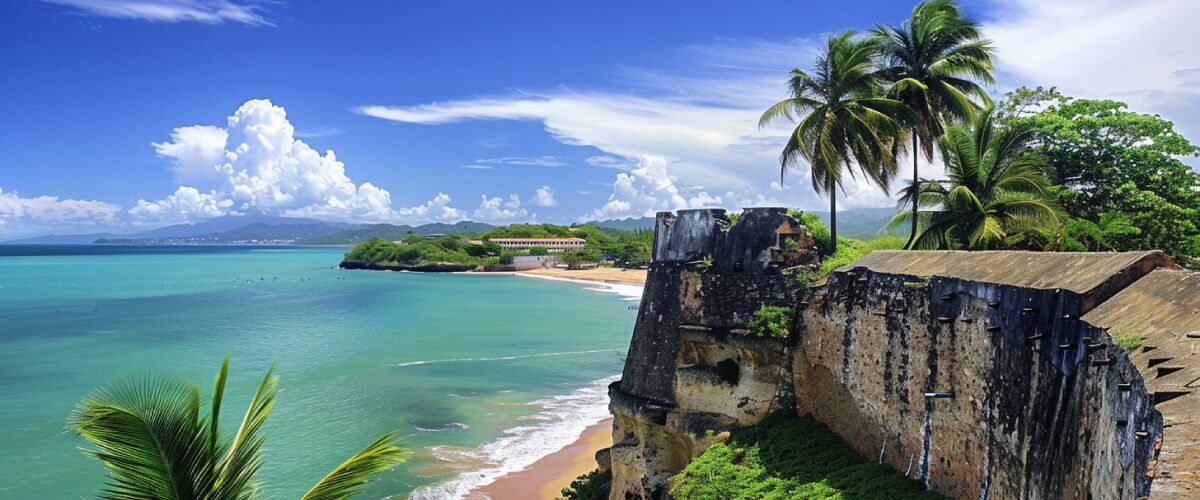Puerto Rico is facing a dire economic crisis, marked by high poverty, crime, crumbling infrastructure, and a staggering public debt burden.
While Puerto Rico has sought to attract businesses and wealthy individuals through generous tax breaks, these measures have done little to address the territory’s deep-rooted economic woes.
In fact, critics argue the tax incentives have exacerbated inequality and resentment among Puerto Ricans, while failing to spur sustainable growth. As the island struggles to restructure its $70 billion in public debt, the debate over the role and efficacy of its tax policies has taken on heightened importance.
Learn How to Legally Cut Your Tax Bill
Enter your email below, and we’ll send you a curated list of the most effective tax reduction strategies our clients are using today.
The Nestmann Group does not sell, rent or otherwise share your private details with third parties. Learn more about our privacy policy here.
By signing up for this briefing, you’ll also start to receive our popular weekly publication, Nestmann’s Notes. If you don’t want to receive that, simply email or click the unsubscribe link found in every message.
Puerto Rico’s Tax Incentives
Many people are excited about the tax benefits of living in Puerto Rico. But I remain skeptical.
Here’s a summary of how the tax incentives in Puerto Rico work:
Since Puerto Rico is a US territory, not a state, under the federal tax code, the island has more latitude than states over how income is taxed. Tax incentives for US territories have come and gone over the years, but at present, the main federal tax incentive for Puerto Rico provides that bona fide residents of the territory need not pay income tax on “income derived from sources within Puerto Rico.”
While Puerto Rico’s income tax rates are much higher than any US state (up to 33% on incomes over $61,500 and sales taxes are also higher than any US state, at 11.5%.), this federal exemption opens the door for local tax incentives.
In 2012, Puerto Rico passed Act 22, which provides the following benefits for bona fide residents:
- 100% tax exemption from Puerto Rico income taxes on all Puerto Rican-source dividends and interest payments; and
- 100% tax exemption from Puerto Rico income taxes on all short- and long-term capital gains accrued since becoming resident in the territory.
This makes Puerto Rico attractive for wealthy US citizens or green card holders who want to reduce their federal tax burden on passive income. The incentives are guaranteed to remain in place until 2035.
To qualify for benefits under Act 22, you must actually relocate to Puerto Rico. And you must satisfy the IRS definition of a “bona fide resident” of Puerto Rico for each year you seek to obtain them. That means:
- You must be physically present in Puerto Rico at least 183 days annually;
- You must not have a closer connection to the US or any other country than to Puerto Rico; and
- Puerto Rico must be the center of your social, political, cultural, and religious activities.
Puerto Rico Tax Incentives: How Much Can You Really Save?
Much has been made of the Puerto Rico Tax Incentives brought in in 2012. But how much tax could you really save? And do you qualify? Find out here: Puerto Rico tax incentives.
Poverty, Crime, and Crumbling Infrastructure: The Harsh Realities of Life in Puerto Rico
Puerto Rico faces significant challenges that make it a questionable place to live:
- Over 45% of residents live in poverty, 3 times the U.S. mainland rate.
- Crumbling infrastructure and public services.
- Rampant crime, with a murder rate 5 times the US mainland.
- The economy has shrunk by 1/6 since 2006, with massive job and business losses.
- A debt crisis leading to austerity measures like public sector layoffs and service cuts.
Many of these problems stem from Puerto Rico’s status as a US territory. Congress has imposed control over the island’s economy through a Congress created a Financial Oversight and Management Board, which is essentially a debt collection agency for hedge funds. Laws like the Jones Act also hamper Puerto Rico’s economy.
I’m skeptical the tax incentives will last, especially as they are seen as benefiting wealthy outsiders while locals suffer austerity. And I wonder if the tax savings are worth living in a place with so many challenges.
Need Help?
Over the past 40+ years, we’ve helped thousands of clients build better wealth protection plans. Part of that is to look for legal ways to minimize your tax burden.
Interested in finding out how we can help you? It starts with an introductory consultation with one of our Associates. You can do that here.
How To Stop Paying Taxes Legally (8 Ways from Easiest to Hardest)
No one likes taxes but you don’t have a choice. Or do you? In this article, we talk about 8 ways to legally reduce, defer, or stop paying taxes entirely.
For more information, visit: how to stop paying taxes legally.













